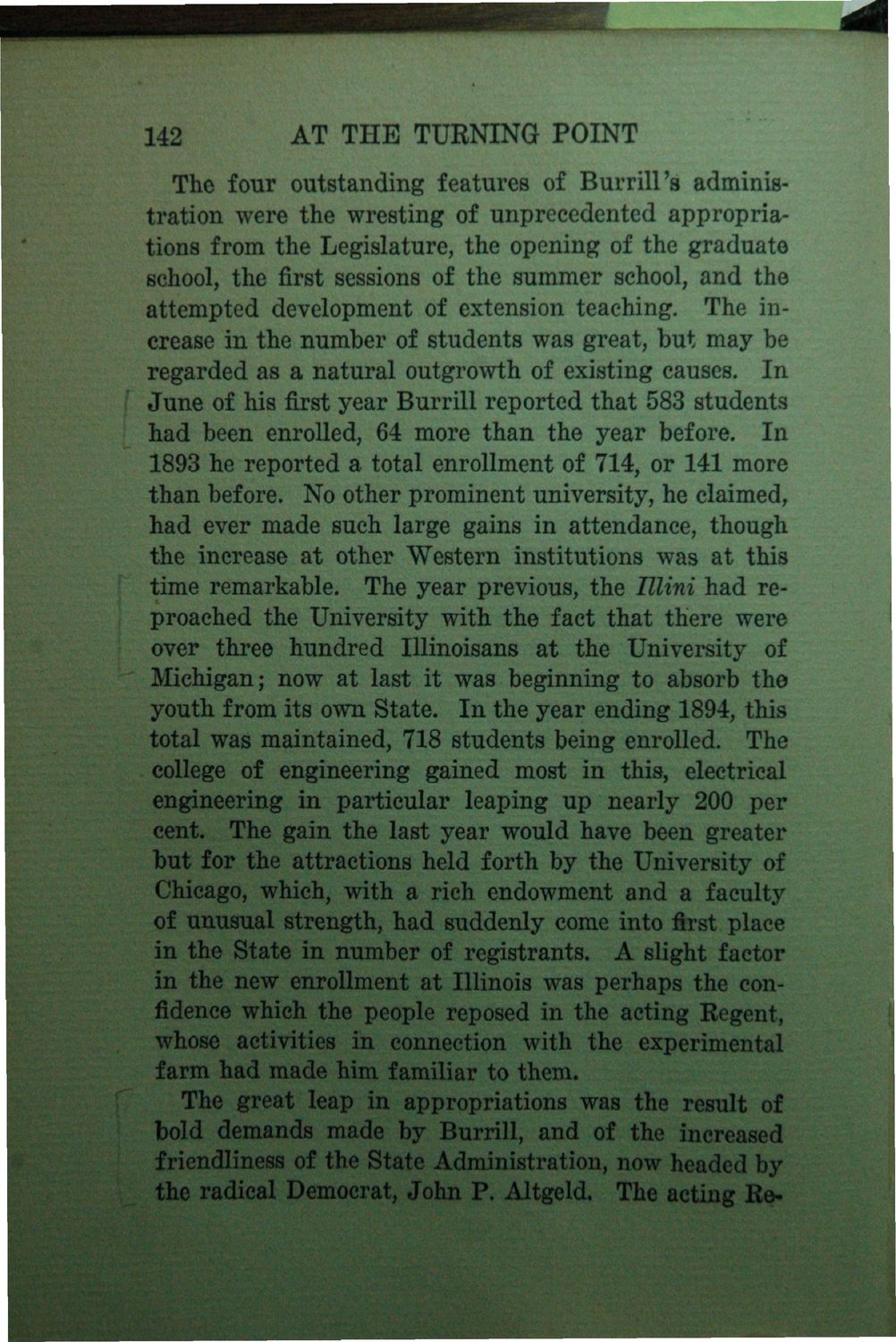| |
| |
Caption: Book - History of the University (Nevins)
This is a reduced-resolution page image for fast online browsing.

EXTRACTED TEXT FROM PAGE:
142 AT THE TURNING POINT The four outstanding features of Burrill *s administration were the wresting of unprecedented appropriations from the Legislature, the opening of the graduate school, the first sessions of the summer school, and the attempted development of extension teaching. The increase in the number of students was great, but may be regarded as a natural outgrowth of existing causes. In June of his first year Burrill reported that 583 students had been enrolled, 64 more than the year before. In 1893 he reported a total enrollment of 714, or 141 more than before*||No other prominent university, he claimed, had ever made such large gains in attendance, though the increase at other Western institutions was at this time remarkable. The year previous, the Illini had reproached the University with the fact that there were over three hundred Illinoisans at the University of Michigan; now at last it was beginning to absorb the youth from its own State. In the year ending 1894, this total was maintained, 718 students being enrolled. The college of engineering gained most in this, electrical engineering in particular leaping up nearly 200 per cent. The gain the last year would have been greater but for the attractions held forth by the University of Chicago, which, with a rich endowment and a faculty of unusual strength, had suddenly come into first place in the State in number of registrants. A slight factor in the new enrollment at Illinois was perhaps the confidence which the people reposed in the acting Regent, whose activities in connection with the experimental farm had made him familiar to them. The great leap in appropriations was the result of bold demands made by Burrill, and of the increased friendliness of the State Administration, now headed by the radical Democrat, John P. Altgeld. The acting Bel
| |